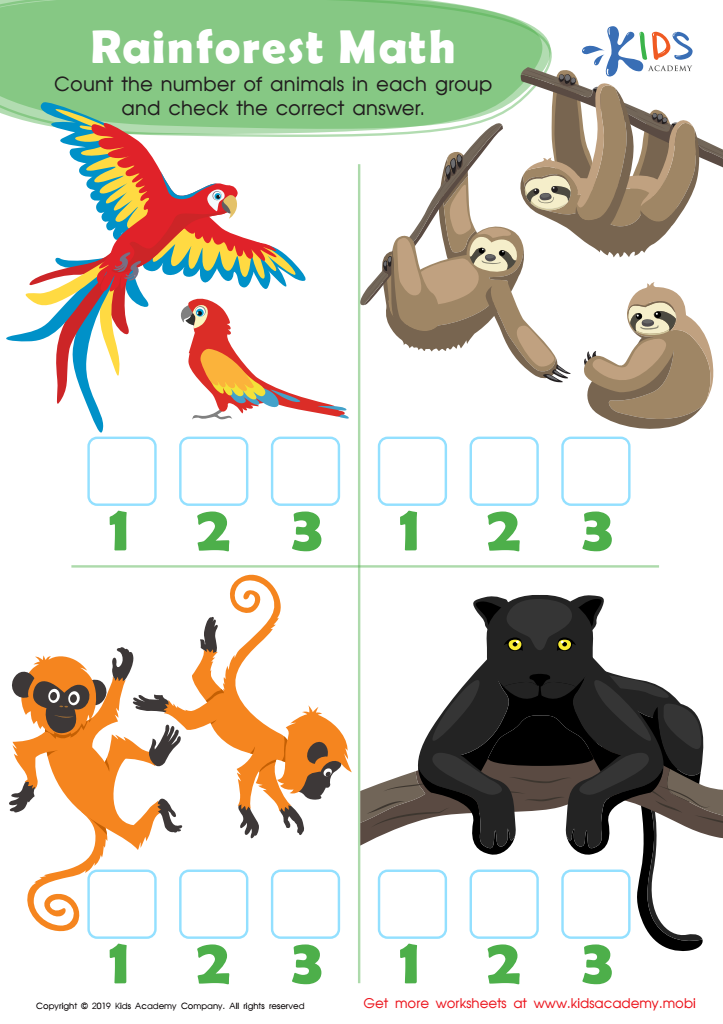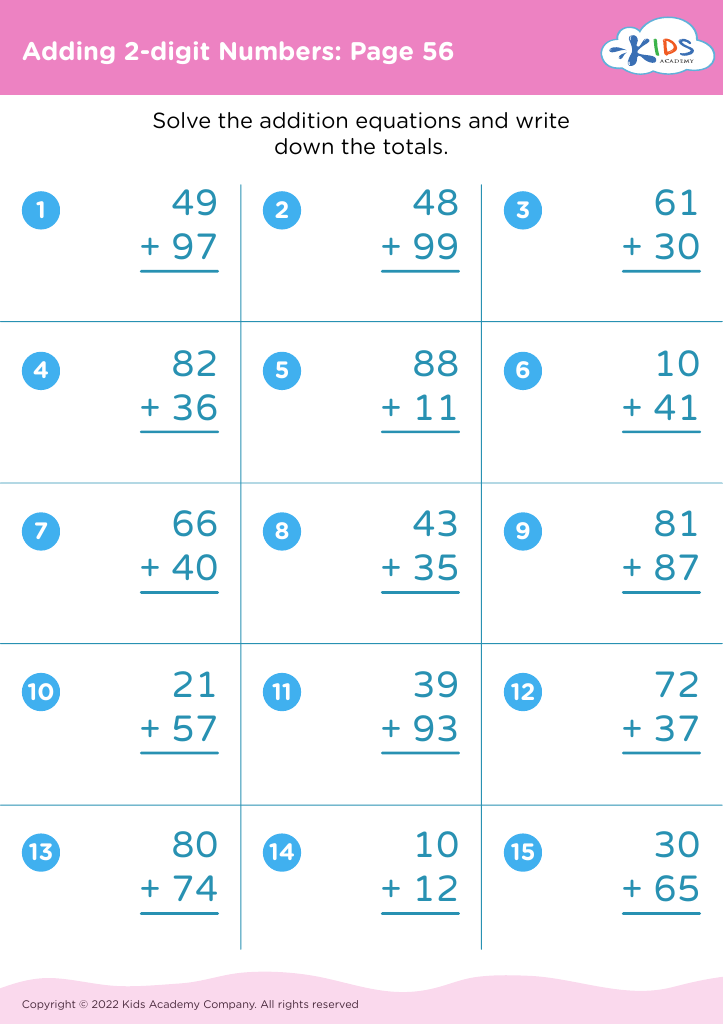Understand sequencing Math Worksheets for Ages 4-7
3 filtered results
-
From - To
Discover the importance of sequencing with our engaging math worksheets designed for children aged 4-7. These printable resources help young learners grasp the foundational concepts of order, patterns, and logical reasoning. Our carefully crafted worksheets encourage kids to arrange events and numbers sequentially, fostering critical thinking and problem-solving skills. With colorful visuals and fun activities, your child will stay motivated while developing essential sequencing abilities. Perfect for parents and educators alike, these worksheets provide a delightful way to explore math concepts and build confidence in young minds. Help your child embark on a learning journey where math becomes enjoyable and accessible!


Rainforest Math Worksheet
Understanding sequencing in math is crucial for children aged 4-7 as it lays a foundational skill for their overall cognitive development. Sequencing involves recognizing order, patterns, and relationships, which are essential concepts in both mathematics and daily life. When children grasp sequencing, they are better equipped to solve problems, comprehend time-related concepts like days of the week, and understand numerical relationships such as greater than or less than.
For parents and teachers, fostering sequencing skills can enhance children’s critical thinking abilities, improve their concentration, and support their learning in subjects beyond math, such as language arts and science. Moreover, sequencing activities can make learning fun and engaging, from storytelling with events in order to sorting games with numbers or objects.
Encouraging these skills at this early stage can boost confidence and contribute to lifelong learning habits. Additionally, understanding sequencing helps prepare children for more advanced mathematical concepts, such as addition and subtraction, as they learn to manipulate numbers within a set sequence. Investing time in teaching sequencing will give children a strong academic foundation that will serve them well as they progress through school and tackle increasingly complex challenges.
 Assign to My Students
Assign to My Students


















